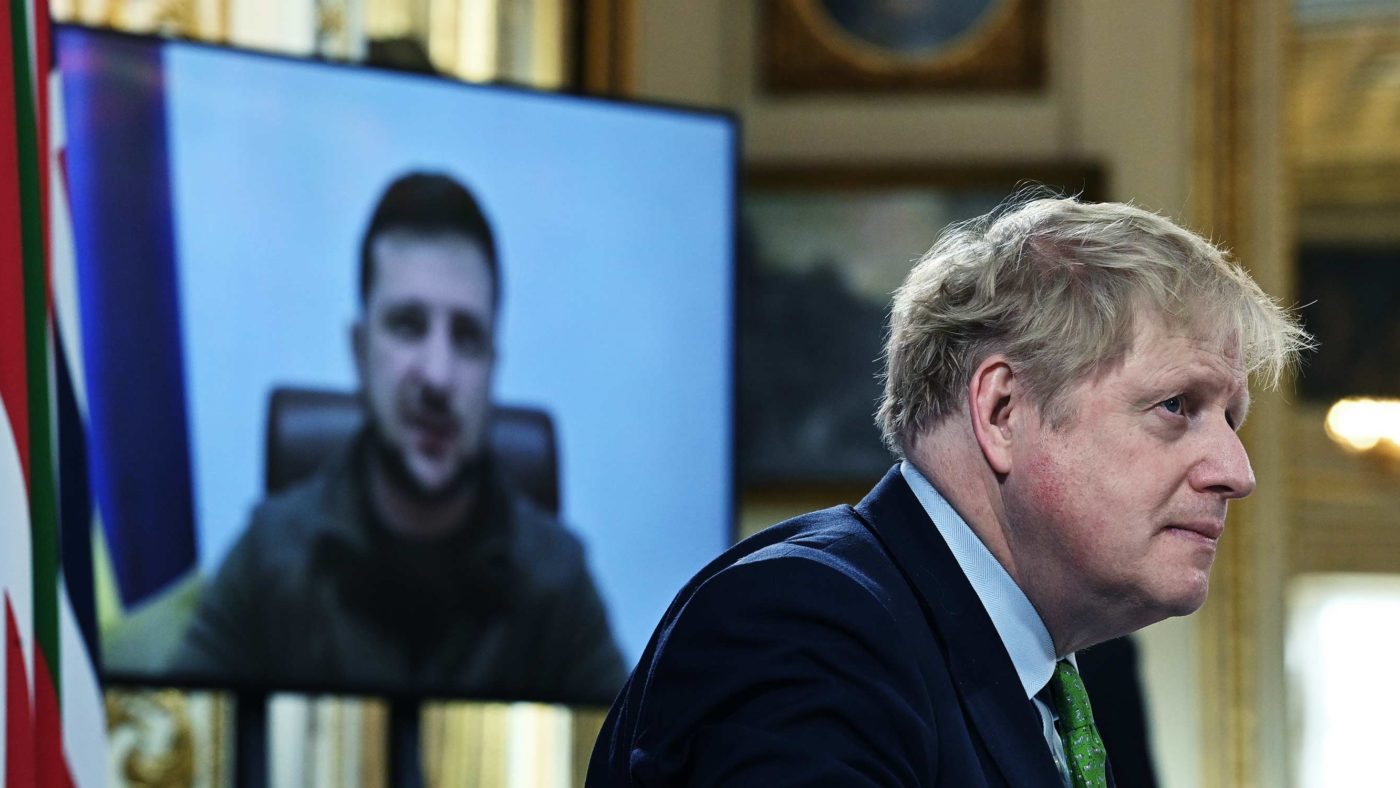While there is little debate in this country over the horrors of Vladimir Putin’s attack on Ukraine, or the fortitude of Ukraine’s people, the question of how Britain can best help is still somewhat up in the air. There is a liberal answer that involves both responding directly to the war and navigating its economic consequences.
Ukraine is by no means a perfect country. It has struggled with the legacy of the Soviet era, particularly with its thousands of state-owned companies that have stymied growth and encouraged corruption. Nevertheless, particularly in recent years, the nation had made some progress in growing a dynamic and free market economy while strengthening its democracy and seeking closer links to the West. The prospect of a truly independent, democratic Ukraine was intolerable to Vladimir Putin, whose own grip on Russia has become more personalist and authoritarian the longer he has been in power.
This isn’t just a regional conflict either. Ukraine’s fight is about principles that matter to the whole world, and it’s not exaggeration to say its soldiers are defending the very concept of self-determination, against the cruelest of adversaries. For the West, the path of least resistance would be to uncritically accept Russia’s invasion of Ukraine – but appeasement only postpones our problems by encouraging ever more aggressive behaviour from Putin.
It is not only morally right and strategically astute to push back as strongly as possible against Russian expansionism, but a fulfilment of our existing international commitments. Remember that in December 1994, the UK and the United States, Belarus, Kazakhstan, and Ukraine all signed the Budapest Memorandum on Security Assurances. The agreement committed Ukraine to abandon their nuclear weapons stockpile, subsequently transferred to Russian control. In exchange, signatories agreed to respect the independence and sovereignty of Ukraine.
Of course, the UK has not sat on its hands when it comes to supporting Ukraine. Indeed, Britain was among the first countries to condemn the amassing of Russian troops, and back up that rhetoric by sending weapons and military staff both to Ukraine and other eastern European countries. In terms of lethal aid, the UK was well ahead of the likes of France, Germany and Italy.
As well as humanitarian and military aid, we have also provided loans to ensure Ukraine can continue to function as the economy comes to a standstill. Along with conventional military equipment, British Intelligence and cyber defence has also been crucially important, as has been joining the information war to rebut endless Russian disinformation and propaganda about the war. Nor, thankfully, have we suggested that the answer to this conflict is appeasement. Boris Johnson has been admirably clear that the end to this war is through Russia’s withdrawal, not Ukraine’s capitulation. And if there is to be a bloody, protracted insurgency against Russian occupation, the UK should continue to offer Ukraine its full-throated support.
But for all the help Britain has already offered, we can still go further to hit the Putin regime where it hurts. This may involve some creative thinking.
The UK could, for instance, host the international war bonds for Ukraine in the London financial markets, backed up by seized Russian assets; we could offer Russian soldiers a ‘defection bonus’ (of a suitably tempting amount of money), safe passage, immunity and resettlement in the West to any who no longer wish to serve in Ukraine. It’s not just soldiers though, we should offer a generous resettlement scheme for Russian dissidents who face brutal persecution and lengthy jail sentences – encouraging a brain drain in the process.
At the same time, Britain and its allies should not be in the business of escalating this conflict into a direct conflict between nuclear powers. Calls for a ‘no fly zone’ above Ukraine may sound appealing, but the idea is both deceptive and dangerous. It would effectively mean Nato countries shooting down Russian jets, with all the consequences that would entail. The UK has already made clear that under its commitment to Nato’s collective defence, it will respond if Russia attacks a member of the alliance. However, this same protection cannot realistically be extended to Ukraine without putting millions, if not billions, of lives at risk.
That may seem harsh given the extraordinary suffering of the Ukrainian people, but a broader conflict would only risk even more suffering, including for Ukraine itself. If we want to respond as effectively as possible, the answer is not just big hearts, but cool heads.
Click here to subscribe to our daily briefing – the best pieces from CapX and across the web.
CapX depends on the generosity of its readers. If you value what we do, please consider making a donation.


